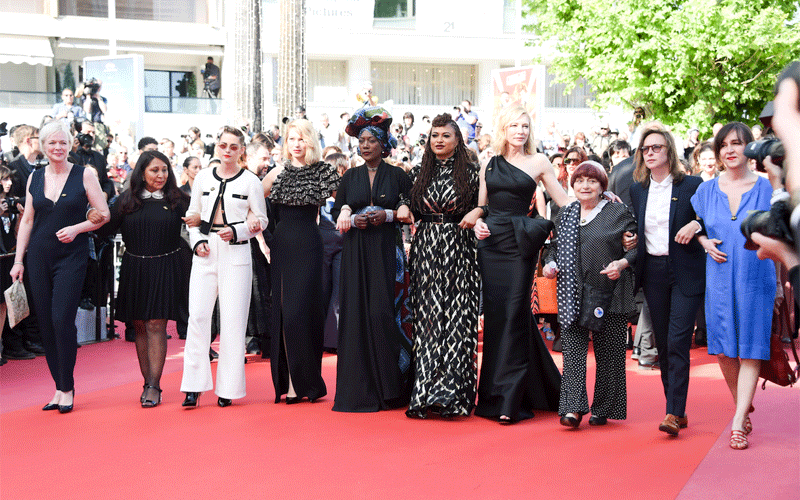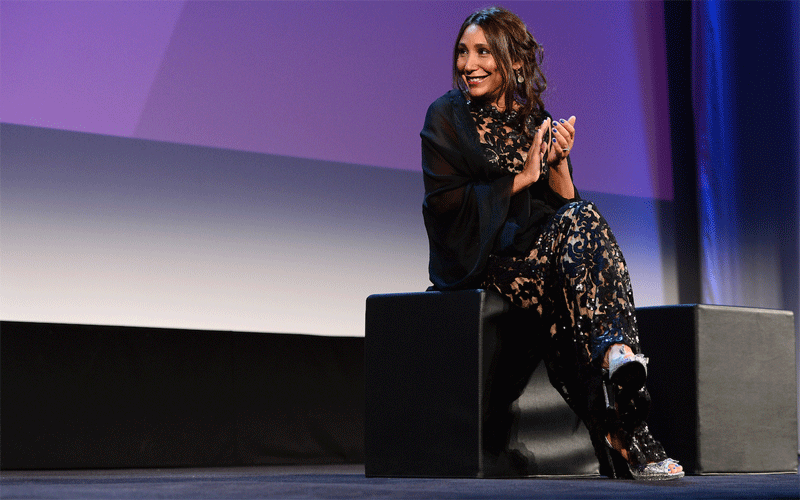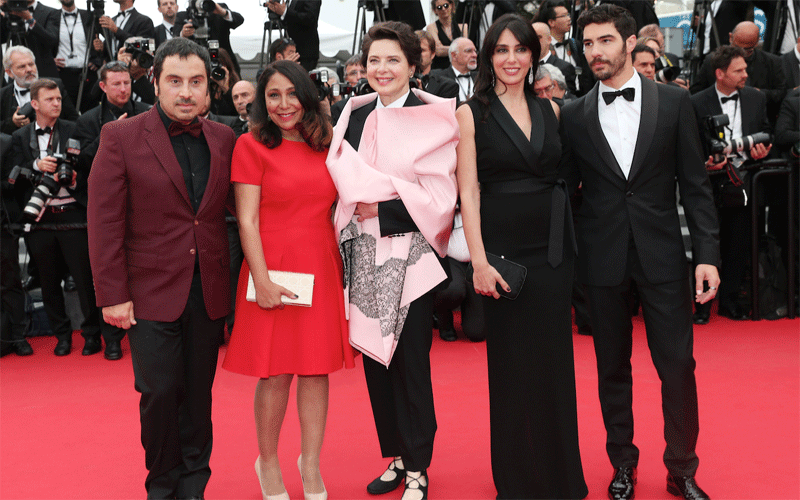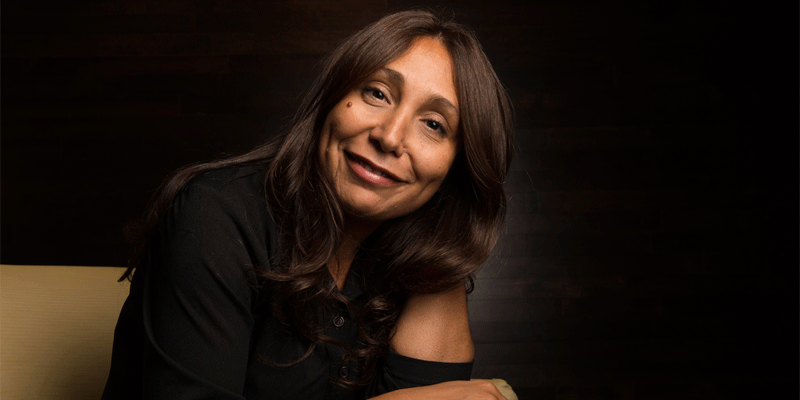On Arab women’s spirit of steel and her filmmaking legacy
This year has seen some huge changes take place in Saudi Arabia. June 2018 saw the decades-old ban on women driving lifted as part of Crown Prince Mohammed bin Salman’s efforts to modernise the Kingdom.
While the first cinema opened in the country after 35 years this April, with plans to roll out 40 more over the next five years, with the Kingdom’s ambitious drive to develop its entertainment sector by 2030 sees no signs of slowing down.
Ahead of Nappily Ever After, Saudi Arabia’s first female filmmaker Haifaa Al Mansour’s directorial debut for Netflix, we sat down with her to find out how it feels to be part of the changes taking place in the region, the advice she’d give to aspiring female filmmakers in the Middle East and why she’s looking forward to returning.
With her next film, The Perfect Candidate, the first to be backed by the Saudi Film Council, it’s a far cry from when she made her directorial debut Wadja, the first film shot entirely in the Kingdom, out of the back of a van…
ALSO READ:
Second feature film set in Saudi Arabia debuts at Venice Film Festival
Saudi Arabia is ready for women to hit the road, officials say
How does it feel to be the first female Saudi filmmaker?
It feels good – although I really didn’t set out to be the first female Saudi filmmaker! I think it’s very important not go after titles as much as going after something that makes you happy and that’s why I wanted to be a filmmaker. I think it’s important for women to go after things that make them happy and not to worry about what society expects of them or whether they will face praise or criticism. As long as you have what makes you happy at the forefront of what you do it allows you to great work.

Walking the red carpet in protest of the lack of female filmmakers, alongside Ava DuVernay and Cate Blanchett
Do you hope that one day that Saudi women will no longer have to content with labels such as the ‘first Saudi female filmmaker’ and ‘the first Saudi female fashion designer’?
Definitely. I do think it’s important to have this in mind and use it to drive you. Women should feel empowered to think ‘yes, I can be a fashion designer or a filmmaker now’. But I guess someone always has to be the first. Choosing a profession is a decision you have to live with the rest of your life which is why if isn’t something that you enjoy doing, it’s going to be a difficult journey and it’s going be difficult to succeed.
You’re arguably at the centre of some massive changes in the film industry in Saudi, and that’s something that you’ve contributed to. How does that make you feel?
I’m really excited to see the industry there develop. Not only bringing films to the region but it now gives the country a platform, an outlet, to tell its own stories and that’s what excites me the most. I think globally, it’s so significant as it allows Saudi Arabia to be seen as a real market from an international perspective. What most people don’t realise is that we have a huge population with so many great, and important, stories to tell.
When you shot Wadja, it was the first feature film to be shot in the Kingdom and the first commission to the Oscars. How much has this since changed for the landscape of women in film like yourself?
It’s changed a lot. It’s drastically different now compared to when I started shooting. When I initially shot the film, finding financial backing and filming was very challenging as the country was so segregated. On top of that, there was a media ban so there was a lot to contend with. Even the basic aspects of film-making were challenging. For instance, there weren’t a lot of actresses who were willing to appear in front of the camera. All of this has changed so much in a relatively short space of time. Since then, I’ve met a lot of aspiring Saudi actresses, who are now so much more confident in putting themselves out there and believing in themselves.

Haifaa al-Mansour on stage during the Opening Ceremony at the 70th Venice International Film Festival
Saudi Arabia has marked a number of milestones for women’s rights over the past year, symbolizing a new era for the Kingdom. How does it feel to witness this?
It’s amazing! I still don’t have my Saudi driving license because I was away when it happened. It was such a huge milestone for women there being able to have the freedom to drive after so long. When I was working there, I remember how much I struggled – sometimes I’d be late for work because the driver wouldn’t show up. So it’s really wonderful to give women that control over their own lives.
What tips would you give to any women in Saudi Arabia and the wider region who might face obstacles when achieving their goals?
Don’t give up and try not to be angry at people standing in your way. Change doesn’t come by screaming at people – you have to be smart and try and find your way around the obstacles. I have to say that we Arab women know how to adapt, and it’s [only when] honing that skill and putting it into practice is when great things are achieved.
What advice would you give to aspiring female filmmakers in the region?
We’re in a time now where there’s more opportunities than ever before so having that self-belief and drive is very important. Spend time perfecting your craft and make sure that you present the best version of yourself in all your work. Be open-minded and embrace criticism, no matter how hard it is to hear as this is ultimately only going to make you stronger in the long run.

On the red carpet in Cannes alongside fellow Lebanese filmmaker, Nadine Labaki (second from right)
Tell us a bit more about Nappily Ever After. Why it was so important for you to create a film like this?
I fell in love with the story because it’s essentially about a woman who is only just learning how to really appreciate her self-worth, and on that level, it’s a journey that’s important and relevant for everyone, male or female. Often, we only we see ourselves through others and not through how we really think and feel ourselves and I believe it’s very important to change that perception.
Are you looking forward to shooting The Perfect Candidate? How much will it differ from Wadja?
I’m really excited about starting shooting for The Perfect Candidate. I’ve been working away from home for several years and I’m really looking forward to being back in Saudi and working from there again.
You’ve already established a legacy in filming in Saudi Arabia and you’re not even finished. How does that feel?
It feels good. In fact it feels pretty awesome!
– For more about Dubai’s lifestyle, news and fashion scene straight to your newsfeed, follow us on Facebook
Images: Getty











